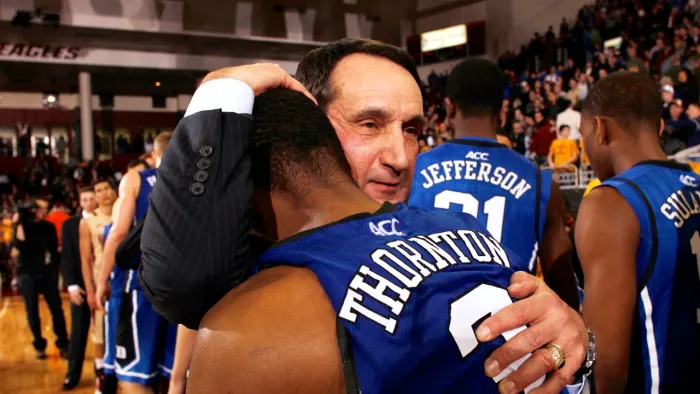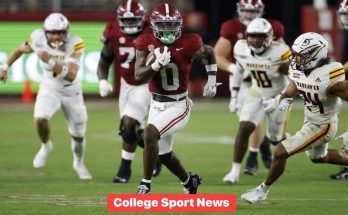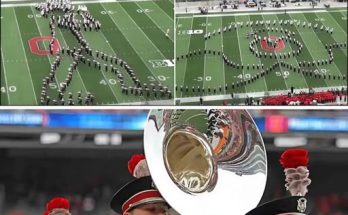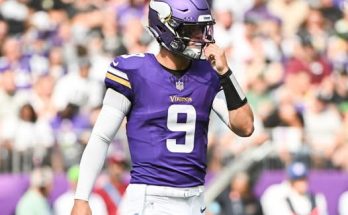In the wake of Duke’s heart-wrenching loss to the University of Houston in the Final Four of the NCAA Men’s Basketball Tournament, CBS Sports has stirred significant conversation by openly advocating for the return of legendary coach Mike Krzyzewski to the helm of the Duke Blue Devils. The call has sparked both nostalgia and debate, reigniting passionate opinions from fans, analysts, and former players alike. Coach Krzyzewski, affectionately known as “Coach K,” retired in 2022 after an illustrious 42-year tenure that etched his name permanently in the annals of college basketball history.
Duke’s loss to Houston was not just a defeat on the scoreboard; it was an emotional blow to a program steeped in a tradition of excellence, one that has grown accustomed to making deep tournament runs under Coach K’s storied leadership. In the matchup, Houston showcased a defensive clinic, smothering Duke’s offense and capitalizing on uncharacteristic turnovers and poor shooting percentages. While the Blue Devils showed flashes of brilliance, they ultimately could not withstand the pressure and intensity that the Cougars brought to the floor.
The postgame narrative quickly shifted from tactical analysis to a broader examination of Duke’s current trajectory under head coach Jon Scheyer, who took over following Coach K’s retirement. Despite being a former Duke player and long-time assistant under Krzyzewski, Scheyer has faced mounting scrutiny in only his second year at the helm. While he has maintained a respectable record and secured strong recruiting classes, critics argue that the program has lacked the same aura, resilience, and strategic depth that defined the Coach K era. CBS Sports analysts wasted little time in floating the idea of bringing back Coach K, suggesting that his leadership could rejuvenate a program now facing questions about its future.

The proposition has stirred a wide array of reactions. Some fans and analysts are enthusiastic, pointing to Krzyzewski’s unparalleled resume: five national championships, 12 Final Four appearances, 15 ACC Tournament titles, and over 1,200 career wins. His tenure transformed Duke from a regional power into a national juggernaut, consistently producing NBA talent and setting a gold standard for college basketball programs. Supporters of a potential return argue that even a short-term comeback could stabilize the program, mentor current players, and help in transitioning the team more effectively under new leadership.
Others, however, caution against the idea. They argue that bringing Coach K back could undermine Scheyer’s authority and send a mixed message about the program’s commitment to its current trajectory. Moreover, Krzyzewski has expressed contentment in retirement, enjoying time with family and engaging in philanthropic efforts through the Emily Krzyzewski Center, named after his late mother. His legacy is intact, and some believe that a return, especially if unsuccessful, could tarnish the carefully curated narrative of his departure.
CBS Sports analysts, however, maintain that the urgency of the moment might warrant extraordinary measures. In their post-game coverage, personalities like Seth Davis and Clark Kellogg highlighted the emotional and strategic void left by Coach K’s absence. They noted that while Scheyer is young and promising, the learning curve is steep, and expectations at Duke are unforgiving. The Blue Devils are not just any program; they are a symbol of sustained excellence in college basketball, and anything short of a Final Four or national championship appearance is often viewed as falling short.
Complicating matters is the shifting landscape of college basketball itself. The rise of NIL (Name, Image, and Likeness) deals, the transfer portal, and increasing parity in recruiting have made program stability and leadership more critical than ever. CBS Sports argues that Krzyzewski’s gravitas could serve as a stabilizing force in these turbulent times. His relationships with NBA scouts, media, and athletic departments provide a competitive advantage that few other coaches can match. Additionally, his ability to adapt to the evolving nature of the game was evident in his final years, as he embraced one-and-done players and modern offensive schemes.
What adds another layer of intrigue to the discussion is Krzyzewski’s own continued involvement with the sport. Although retired, he has remained a visible figure in basketball circles, occasionally appearing at games, mentoring younger coaches, and serving as an ambassador for the game. His continued proximity to the Duke program also suggests that a return, while improbable, is not entirely out of the realm of possibility. CBS Sports speculated that even a short-term advisory role or a season-long comeback could yield substantial benefits for Duke’s competitive standing.
Former Duke players have also weighed in on the debate. Some, like Jay Williams and Christian Laettner, have expressed openness to the idea, citing Krzyzewski’s unique ability to motivate and mold young talent. They argue that his presence alone could inspire a deeper commitment from players and enhance team chemistry. Others, such as Grant Hill, have voiced support for Scheyer, emphasizing the importance of continuity and allowing the new coaching staff to develop its own identity.
The recruiting implications of a potential Coach K return are also significant. Duke has consistently attracted top-tier high school talent, but recent years have seen increased competition from other blue-blood programs and rising mid-majors. A return by Krzyzewski, even temporarily, could reassert Duke’s dominance on the recruiting trail. CBS Sports highlighted this angle, suggesting that his mere presence in a gym could sway top prospects and their families, many of whom still view Coach K as the ultimate authority in college basketball.
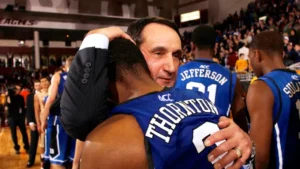
Financially, Duke could also benefit from a Krzyzewski comeback. Merchandise sales, ticket demand, and media attention would likely surge, offering a short-term revenue boost. The university’s broader brand, already synonymous with excellence, would be reinvigorated by the return of its most iconic figure. CBS Sports pointed to similar examples in professional sports, where legendary coaches and players have made successful comebacks that galvanized their franchises and fan bases.
Nevertheless, logistical challenges remain. Krzyzewski would need to evaluate his health, energy levels, and personal commitments. The administrative aspects of a return would also require coordination with Duke’s athletic department and university leadership, who would need to weigh the short-term benefits against long-term strategic goals. CBS Sports acknowledged these hurdles but maintained that the unique opportunity presented by Duke’s current situation could justify extraordinary efforts.
Ultimately, the debate touches on larger themes about legacy, leadership, and the evolving nature of collegiate athletics. Coach K’s career has been a masterclass in excellence, resilience, and adaptability. His return, even in a limited capacity, would not only offer a potential competitive advantage but also serve as a powerful symbol of continuity and tradition in a sport increasingly marked by change. CBS Sports’ call for his comeback, while bold, reflects a deep understanding of what he represents—not just to Duke, but to the game of basketball itself.
Whether or not Krzyzewski decides to return, the very fact that his name is being invoked in this manner speaks volumes about his enduring influence. It also underscores the challenges facing Jon Scheyer and the immense pressure that comes with leading a program like Duke. As the dust settles on another March Madness heartbreak, the Blue Devils and their loyal fanbase are left to ponder what comes next. CBS Sports has offered one provocative answer: bring back the man who built the dynasty. Whether this becomes reality or remains a compelling what-if, the conversation is likely to continue well into the offseason, fueled by memories of past glory and hopes for future triumphs.
Coach K’s legacy is already enshrined, but in the dynamic and unforgiving world of college basketball, even legends can be called upon once more. CBS Sports has not just reignited a debate—they’ve tapped into the collective longing of a fanbase that tasted greatness for decades and now hungers for a return to the summit. Time will tell if that call is answered.
